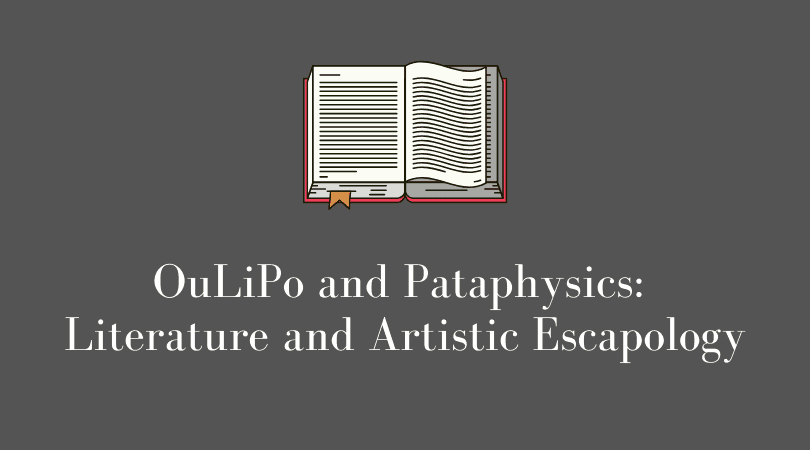 In this last article of my traineeship in the Terminology Unit, I would like to tell you about one of my passions, and will do it in a passionate way.
In this last article of my traineeship in the Terminology Unit, I would like to tell you about one of my passions, and will do it in a passionate way.
I was still in secondary school when I encountered potential literature (PL) for the first time. Under the guidance of our Italian language professor, my class created a blog of book reviews and creative writing. Each creative writing task was a literature exercise. First of all, we had to choose a constraint for our composition i.e. a rule that needs to be followed. For instance, ‘write a poem without using the letter o’ or ‘write a palindrome sentence’.
Potential literature is such a complex literature exercise that it is worthy of being called an art form. If literature were magic, potential literature would be escapology. If literature were visual art, potential literature would be a circus. If literature were a sport, potential literature would be an iron man competition. After this first blog experience, I became interested in everything that is funny and complex at the same time.
Why do I want to tell you about this underground genre of literature, and why do I want to do it on such a prestigious terminology and general linguistics website? Because there are crossovers between potential literature and terminology, and this genre is wholly based on linguistic jokes, told simply for linguistic pleasure. The content is very often disregarded because the form represents everything, including the content. Moreover, through these jokes, it is possible to discover many interesting language properties that could never be spotted otherwise.
Potential literature began with Raymond Quenau’s ‘style exercises’, which involve writing the same trivial episode in more than one hundred different ways and styles.
The constraint that is most closely related to terminology is so-called ‘littérature définitionelle’. Each word in a sentence is replaced by one of its own definitions from any dictionary. The same process can be repeated on all the new words. In this way, you can see the ‘seed sentence’ flourish like a tree and transform into something that could be unexpectedly different.
This is a nice example from the official Oulipo website.
Soit un énoncé de départ simple : Le chat a bu le lait
- Etape 1 : Le mammifère carnivore digitigrade domestique a avalé un liquide blanc, d’une saveur douce fournie par les femelles des mammifères
- Etape 2 : Celui qui a des mamelles, mange de la viande, marche sur l’extrêmité de ses doigts et concerne la maison a fait descendre dans le gosier par l’estomac un état de la matière sans forme propre, de la couleur du lait, d’une impression agréable sur l’organe du goût et procuré par les animaux du sexe féminin qui ont des mamelles.
Another of the most popular OULIPO formulas is ‘N+7’, which requires the writer to take a poem that already exists and replace all the nouns with the noun appearing seven entries later in any dictionary. The new noun must not share a root with the original one, but must be an entirely different word. Results can vary greatly depending on the dictionary used.
PL is for the writer the sweet slavery that frees him from infinite possibilities. It is therefore strange that this movement began within the Collège Pataphysique, an artistic movement based on the new science of pataphysics, ‘a branch of philosophy or science that examines imaginary phenomena that exist in a world beyond metaphysics; it is the science of imaginary solutions’. An alternative definition regards it as ‘the science of exceptions’, even though each branch of science is based on and evolves on the basis of laws, which in turn elegantly summarise what different phenomena have in common. It is the science of absurd solutions to apparently common problems. On the other hand, the OuLiPo technique could be considered to be research into real solutions to absurd problems.
References
OpLePo, [Accessed date: 27/09/2019]
OuLiPo, [Accessed date: 27/09/2019]
Novum Organum, [Accessed date: 27/09/2019]
Oulipo, a Primer of Potential Literature- Monoskop, [Access date: 27/10/2019]

Written by Cosimo Palma
I studied philosophy, historical philosophy, philosophical history and history in the redundant Naples, computational linguistics and informatics in the city of Marx.
Language enthusiast and chess player in my free time, until the end of September I will spend my busy time in the Tower A of the European Parliament in Luxembourg, trying to do my best in the IT as well as in the Communication department of the Terminology unit.

